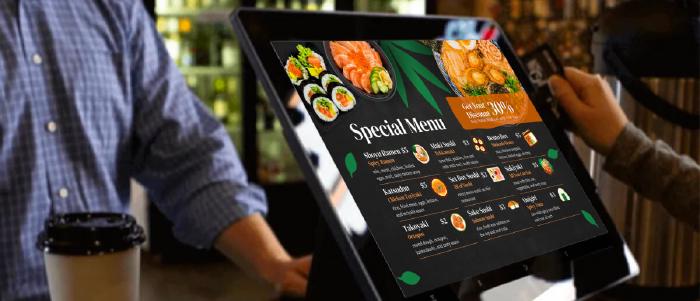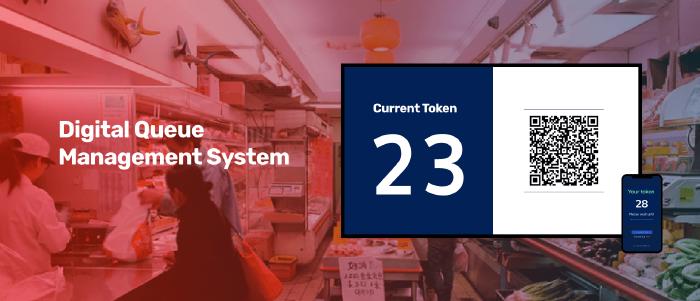
Mar 10 2025
8 min read

The concept of franchise advertising has had businesses scratching their heads for the longest time, not because they need to be made aware of the best marketing channels for their businesses but because of the myth that franchise marketing is the hardest nut to crack!
Some common misconceptions about franchise advertising are that it costs a fortune and only the larger franchise chains can afford it or that franchisors are solely responsible for marketing.
The truth is, many times, the franchisor and franchisees play collaborative role in identifying the target audience, strategizing content creation, and removing the cultural challenges.
In this article, I will introduce you to franchise advertising and marketing― from the basics to the precise strategies and examples that will give you plenty of ideas on applying those best practices for your franchise business.
Let’s get started.

Franchise marketing broadly refers to strategies undertaken to identify and attract customers and franchisees who might be interested in what you do. It helps target people who are not just intending to make a purchase but also those looking to be an investor in your franchise.
Franchise advertising, a crucial aspect here, involves promoting the franchise business through various channels such as social media, digital signage posters & billboards, self-service systems, or point-of-sale advertisement displays. This can be done both locally and nationally, depending on the franchise’s scope and size. With Pickcel’s advanced digital signage solutions, you can effortlessly manage and optimize these advertising channels to achieve maximum impact.
Identifying the target audience enables the franchisor and franchisees to tailor their marketing plan, boosting success rates. For instance, a fast-food franchise targeting busy professionals can create an advertisement campaign highlighting quick service and easy access, replicable in all outlets.
With a central franchise-focused marketing, franchisees don’t need to chalk out a separate plan for marketing campaigns, instead following a proven idea that helps in faster brand awareness.
The larger goal of any franchise advertising is to boost the profitability of the brand by proliferating the number of franchise units.
Nowadays, an omni-channel presence is essential for business brand awareness, especially for franchises that target a heterogeneous group of people. It is important to have an idea of both online and offline franchise advertising platforms.
Franchise businesses are typically spread across several locations. Digital signage is an ideal offline franchise advertising tool that allows remote content management via a centralized signage content management platform.
A high-yielding way to cash in on digital signage at your franchise stores is introducing screens at various points of purchase like product shelves, PoS or checkout areas. Compelling content on your in-store displays stir users to run in for a purchase (even when they did not intend to).

Ever noticed the screens displaying the menu alongside add-ons while walking into KFC? Or a Marriott hotel showing customer ratings at the reception? That is what digital signage means for your business: a focal point where customers see all your marketing communications and take actions.
When it comes to promoting your franchise online, social media and website marketing should be your prime areas of focus.
For many, website is the first point of contact with a potential customer or a franchisee. It’s your e-shop to highlight who your brand is. Therefore, it is essential to have a well-designed content marketing strategy in place to rank your website higher in search engine results and increase brand visibility amongst the target audience.
Marketing your franchise online will also help you understand the behavior of your local audience. This is essential in determining which regions you’re bound to perform well in and what to avoid.
You may also like: What are the best marketing channels for your business?
This is an indispensable part of identifying your target audience, and franchise social media marketing is exactly what helps you understand this. Using personalized ads hits the right chords with the locals and identifies what suits their needs.
Using analytics powered by Facebook, you can find the regions where customers are most engaged with your products.
A local franchisee that understands people’s needs is not just the perfect brand ambassador to your target customers but also a selling point to more franchisees in the region. You should always keep your franchisees aware of your franchise marketing moves.
When managing a brand with the association of third parties, a solid marketing strategy must be clearly outlined to all the stakeholders. Remember these ten essential things while developing your franchise advertising and marketing plan.

Perhaps the most important aspect of franchise marketing is ensuring brand consistency across all marketing channels. Be it online or offline, keeping communication lines clear and open is indispensable for creating brand consistency. Your franchisees should feel free to reach out to you in case of doubts while formulating marketing strategies for their franchise business.
Another critical factor in maintaining brand consistency is providing franchisees access to the franchisor’s assets like logos, images, fonts, and colors.

Focusing on local SEO refers to optimizing your website for a specific region. Enhance your SEO strategy by creating localized content tailored to each franchise location, and optimizing for local keywords.
Suppose you own a restaurant franchise in Los Angeles and want people to discover you on the internet search engines. So, you would eye on ranking yourself when a user searches ‘best restaurants in LA’ or ’top diners in California.’
Registering your franchise business with Google Your Business (GMB) is the first step to penetrating a local market. This is crucial because 46% of Google searches are aimed at finding local information. People conducting these locally-focused searches often have a strong intent to make a purchase. By highlighting your business details, such as your services and the areas you cover, location business markups will help Google identify you as a local business. This, in turn, boosts your visibility and ranking within your service area(s).
Additionally, implement a comprehensive backlink strategy by partnering with local influencers and businesses to increase domain authority. Regularly update and audit your local listings to ensure accuracy and consistency across all platforms.

Several resources have shown that buyers like to check product reviews, brand ratings, and customer feedback before making a purchase.
Now, most of your competitors will make the mistake of leaving those online reviews online. This is your vantage point. You should bring your online reviews in front of your store customers using the store TVs or digital shelf displays.
Your digital display software may already have Google Reviews or Yelp app integrations; it makes your work 10X faster. You can sensibly place these reviews near the product shelves to influence the buyer’s decisions.
For instance, integrating Google or Yelp reviews into in-store digital signage offers real-time social proof. A testimonials section on the franchise’s website, along with prompting happy customers for feedback, fosters trust and draws in new buyers.
Employee advocacy has a simple meaning, the promotion of a company’s brand by its employees. Employees can significantly contribute to brand awareness and elevate your brand on social media. To seize this opportunity, it’s essential to empower employees within the franchise system. Franchises can organize programs that encourage and reward employees who actively promote the brand on social media.
For example, implementing a structured advocacy program with incentives for top contributors can motivate employees to participate. Utilizing tools like Sociabble or Bambu can streamline this process, making it easier for employees to share approved content, thereby amplifying the brand’s message organically.
When companies offer goodies, gifts, or tools and gadgets for official work, employees often share these on social media. The facts speak for themselves: 72% of active social media users would share posts about their company if the content were written about them. By sharing success stories of employees, the company not only boosts brand awareness but also creates a strong and positive image.
Here are the key KPIs for measuring employee advocacy:
Tracks program effectiveness through invites, account creations, and active user metrics.
Measures the rise in average reach on LinkedIn, Facebook, and Twitter through employee advocacy.
Tracks leads, hires, and increased website referrals generated from employees’ social media activity.
Monitors discussions and interactions spurred by employee posts, showcasing follower engagement.
Evaluates user activity and participation on social media beyond mere account ownership.
Highlights top-performing teams or individuals providing valuable and engaging content.
A large-scale franchise brand has to overcome a lot of cultural challenges to penetrate the local markets of different countries. Your pre-launch market survey should give you intelligence on the type of content the potential customers might prefer.
Accordingly, you can design your marketing content in ways like:
Creating multilingual advertising and marketing content:
The global cafe franchise Starbucks is a great case study in this regard. Here’s how the Starbucks website looks for the Japanese audience.

Modifying your products based on the taste of the local people:
In India, 39% of the population are vegetarian, and 81% limit meat in their diet. Only 7.35% of the population consumes beef. This data contrasts that of the home base of McDonald’s, where the annual meat consumption amounted to 27.3 billion pounds in 2019. So what did McDonald’s do? They introduced a range of veg-only burgers and meals and bid farewell to beef and pork on their menus.

Understanding what is considered profane and indecent in a culture:
Cultural appropriation is a huge mistake many brands make, especially when trying to market themselves in a new country. More often, this happens due to a lack of proper cultural research and the lack of involvement of local strategists. In 2018, clothing brand H&M faced severe backlash when they put an African-American child model wearing a hoodie with the message “Coolest Monkey in The Jungle.” Such tone-deaf content can do unimaginable damage to your business.
H&M has appointed a diversity manager after dealing with the fallout from using a black child to advertise a hoodie with the slogan "coolest monkey in the jungle" https://t.co/QK2tetYYML pic.twitter.com/TxmJ7tnrKD
— CNN (@CNN) January 18, 2018
Identify what the culture celebrates:
Again, taking the example of India, Thanksgiving is not widely celebrated in India. So, Thanksgiving-special messages may not resonate among your Indian customers. Instead, a warm Diwali ad will definitely work the charm. Have a look at this Diwali-special ad by McDonald’s for the Indian audience:
Well, let me clear this up for you.
A community does not always mean people from the same region but a network of people who might bond over something they share a common interest.
Let’s take the example of the Canada-based retail brand Lululemon. Lululemon’s strategy combines its made-for-fitness product philosophy with actual real-life fitness programs to build a community of loyal customers who are health-conscious and interested in athletics.


For retail brands, including franchises, the success of your social media marketing can often be a decisive factor in the overall franchise marketing success.
According to Statista, social media marketing activities brought in 60% more sales and grew business partnerships by over 50%. An advertisement on Facebook or LinkedIn can not just ring in customers but also expand your franchise business by bringing in more partners. Additionally, Implementing advanced social media management software is crucial for optimizing marketing efforts across multiple franchise locations. These tools enable streamlined scheduling, monitoring, and analysis of social media campaigns, ensuring consistency and efficiency.
Franchises should establish comprehensive social media policies that outline acceptable behavior, brand voice, crisis management protocols, and privacy concerns. Detailed policies could include specific do’s and don’ts for posting content, guidelines for responding to customer inquiries, and procedures for escalating issues. Providing examples of appropriate and inappropriate posts can help employees understand expectations and maintain consistency across all social media platforms, ensuring the franchise’s reputation remains intact.
Creating detailed social media policies can help franchisors by:
This franchise marketing tip is essential (because not everyone is running around with a PC)! Unless your franchisees and buyers can access your site from anywhere and everywhere, they’ll lose interest in your brand. And once disinterested, they are less likely to ever find out what you have on offer.
Do you want to find out if your site is mobile-friendly? Then run a quick test right here.

It goes without saying!
Follow your audiences’ footsteps and see which touchpoint generates the maximum brand engagement (yep, a franchise digital marketing plan is handy for discovering this the fastest)! Once you know where your audience is, get to them. Reach out, build connections, and get your groundwork done.
Quick Tip: Get the right people onboard. Many franchisees might be interested in your business, but you have to identify who understands your vision for the best! Look for franchisees who share the same core values!
You’re mistaken if you think word-of-mouth is a completely out-of-place idea in today’s digital world. So, what does word-of-mouth marketing entail?
It can be simple but highly effective things like telling your friend about the tastiest taco you had or putting up an online review of a holiday resort you just for your summer vacation. It can also be vlogging or blogging about a product or service you liked. Word-of-mouth marketing is anytime your customers voluntarily promote your brand to their peers.
A recent study discovered that emails are 40x more effective at generating traffic than any social media platform. So if your franchise isn’t sending out emails to stay in touch and connect with current and potential customers, you are missing out on some attractive revenue.
And you know what matters the most here? Sending out emails according to the region, season, and culture.
Say the weather in Paris is scorching right now, and you are offering a Fresh Mint Choco Punch ice cream that’s both delicious and refreshing.
Your franchise in Melbourne isn’t doing the same since it’s relatively cold, and people would not prefer something like that. Sure, your corporate team can send out an email meant for the masses, but with a tailor made (aka franchise-specific) message, you would grab more attention.
Effective reporting and communication are critical for managing a successful franchise. Implement advanced analytics platforms that provide real-time data on KPIs such as sales, customer engagement, and marketing campaign performance. Use tools like Google Data Studio or Tableau to create a centralized dashboard that aggregates data from all franchise locations.
To establish clear communication channels and drive operational efficiency across all franchise locations:
Additionally, Implement automated reporting to reduce manual effort and ensure timely data delivery, using advanced tools. Establish a feedback mechanism for franchisees to share insights and challenges, using this feedback to continuously improve reporting processes and tools.
A viral campaign is every brand manager’s dream come true. It’s not necessary that every campaign hits the nail. However, say it pure luck or precise strategy, some franchise marketing campaigns just are wow. Let’s take a look at a few of them.
A Chick-fil-A in Tampa, FL invited patrons to celebrate the wonderful sights and sounds of the holiday season with a special holiday display that reinforced the brand’s fun-loving image. This display of light received both local and national news coverage. What made it a hit? The brand used the holiday season to its advantage. The campaign also highlighted the unique and localized flavor of one of the brand’s most popular franchise locations.
Subway, needs no introduction. The brand came out with a phenomenal campaign which focused on tailoring menus with regional flavors as well as providing discounts for students and office goers. This ensured that the brand had an elevated customer engagement & loyalty with effective localized marketing initiatives.
Another great franchise marketing campaign that went viral was when a Kia dealer pulled off a marketing stunt called, Kiss the Kia! Here, the dealer asked participants to press their lips on a brand-new 2017 Kia Optima. Whoever was left “kissing” the car for more than 50 hours would win the car. The campaign garnered plenty of social media activity and had a lot of engagement. The campaign was also covered by major news and media outlets, generating big exposure for Kia’s new car. A very unconventional way of marketing a product, this definitely gave the newly launched car a burst of exposure.
The following are some of the most common franchise advertising and marketing myths.
Myth: Franchise marketing is expensive
Fact: While it can be costly, franchise marketing can be done on a budget and can actually save money in the long run by providing a consistent and replicable marketing plan for franchisees.
Myth: All franchisees should follow the same marketing plan.
Fact: While consistency is essential, franchisees should be allowed to tailor their marketing efforts based on the local audience.
Myth: Franchise advertising should focus only on the product or service
Fact: Franchise advertising should also promote the brand and the franchise opportunity to potential franchisees.
Myth: Franchise marketing is a one-time effort
Fact: Successful franchise marketing requires ongoing efforts to analyze and adjust marketing strategies to optimize results.
Franchise marketing is an ever-evolving area; you see something today, and another idea is demanding your attention the next day! But what remains the same are the fundamentals.
If you are new to the world of franchises, the most important thing you need to do is understand your metrics and audience. Set realistic goals and see how they are working out. For when running a franchise, remember you are one tree with several branches, and consistency is what bears you fruits.

Mar 10 2025
8 min read

Oct 22 2020
7 min read

Dec 22 2022
5 min read

Sep 23 2022
7 min read
Take complete control of what you show on your digital signage & how you show it.
Start Free Trial Schedule My Demo

See How Amazon Solved Retail Marketing Challenges – Boosted Sales & Conversions by Almost 27%
Unlock Exclusive Insights